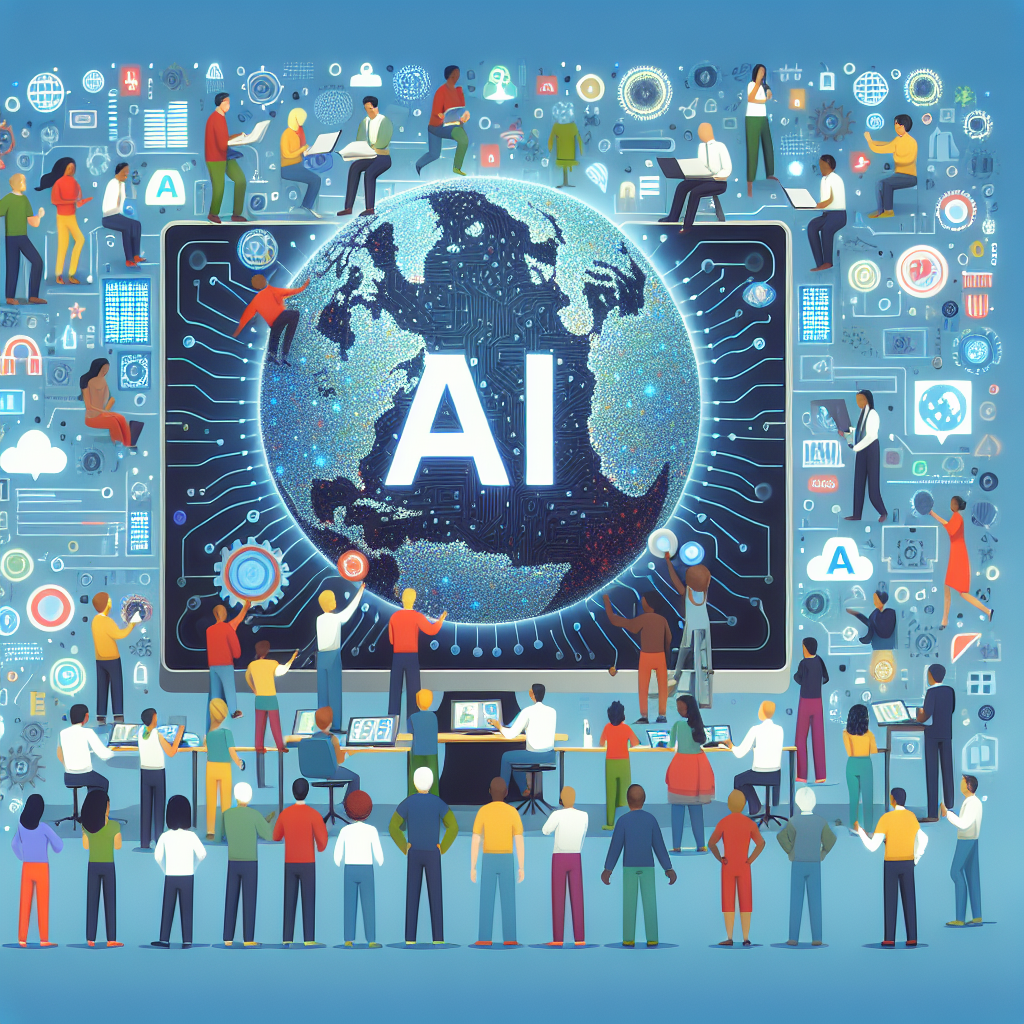The Democratization of AI: Building a More Inclusive World
Artificial Intelligence (AI) has become one of the most transformative technologies of our time, with the potential to revolutionize industries, improve efficiencies, and enhance decision-making processes. However, as AI continues to advance, there is a growing concern about the lack of diversity and inclusivity in the development and deployment of AI systems. The democratization of AI is essential to ensuring that this powerful technology benefits all individuals and communities, regardless of their background or circumstances.
What is the democratization of AI?
The democratization of AI refers to the process of making AI more accessible and inclusive to a wider range of users, including individuals with diverse backgrounds and skill levels. This involves removing barriers to entry, such as high costs, technical complexity, and limited access to data and resources. By democratizing AI, more people can participate in and benefit from the development and deployment of AI systems, leading to a more equitable and inclusive society.
Why is the democratization of AI important?
The democratization of AI is important for several reasons. First, it promotes diversity and inclusivity in the development of AI systems, ensuring that a wide range of perspectives and experiences are represented. This can help to prevent bias and discrimination in AI algorithms, which can have negative consequences for marginalized communities. Second, democratizing AI can help to address the digital divide, ensuring that individuals and communities with limited resources or access to technology can still benefit from AI-powered solutions. Finally, the democratization of AI can drive innovation and economic growth, by enabling more people to participate in the development of AI applications and solutions.
How can AI be democratized?
There are several ways in which AI can be democratized. One approach is to provide free or low-cost access to AI tools and resources, such as open-source software, online courses, and cloud computing services. This can help to lower the barriers to entry for individuals who may not have the financial resources to invest in expensive AI technologies. Another approach is to promote diversity and inclusivity in the AI workforce, by actively recruiting and supporting individuals from underrepresented groups. This can help to ensure that AI systems are developed with a wide range of perspectives and experiences in mind. Additionally, governments and organizations can implement policies and initiatives to promote the responsible and ethical use of AI, such as regulations on data privacy and transparency in AI algorithms.
What are the benefits of democratizing AI?
There are several benefits to democratizing AI. First, it can help to address bias and discrimination in AI algorithms, by ensuring that a diverse range of perspectives and experiences are represented in the development process. This can lead to more fair and equitable AI systems, which benefit all individuals and communities. Second, democratizing AI can help to drive innovation and economic growth, by enabling more people to participate in the development of AI applications and solutions. This can lead to new opportunities for entrepreneurship and job creation, as well as the development of new AI-powered products and services. Finally, democratizing AI can help to bridge the digital divide, by ensuring that individuals and communities with limited resources or access to technology can still benefit from AI-powered solutions.
In conclusion, the democratization of AI is essential to building a more inclusive world, where all individuals and communities can benefit from the transformative power of AI. By removing barriers to entry, promoting diversity and inclusivity, and ensuring responsible and ethical use of AI, we can create a more equitable society that harnesses the full potential of this powerful technology.
FAQs
Q: What are some examples of AI tools and resources that can help to democratize AI?
A: Some examples of AI tools and resources that can help to democratize AI include open-source software such as TensorFlow and PyTorch, online courses and tutorials on platforms like Coursera and Udemy, and cloud computing services like Google Cloud and Amazon Web Services.
Q: How can governments and organizations promote the responsible and ethical use of AI?
A: Governments and organizations can promote the responsible and ethical use of AI by implementing regulations on data privacy and transparency in AI algorithms, conducting audits and assessments of AI systems, and supporting initiatives to promote diversity and inclusivity in the AI workforce.
Q: What are some challenges to democratizing AI?
A: Some challenges to democratizing AI include the high costs and technical complexity of AI technologies, the lack of diversity and inclusivity in the AI workforce, and the potential for bias and discrimination in AI algorithms. Addressing these challenges will require a concerted effort from governments, organizations, and individuals to promote a more inclusive and equitable AI ecosystem.

